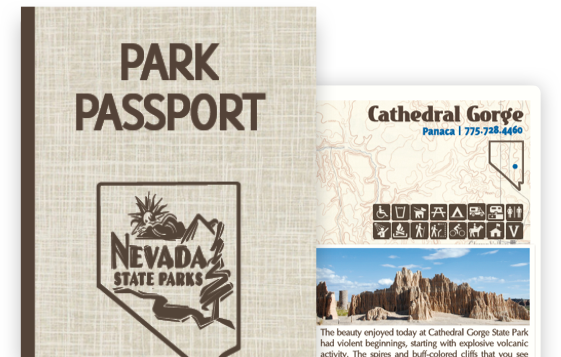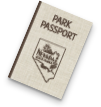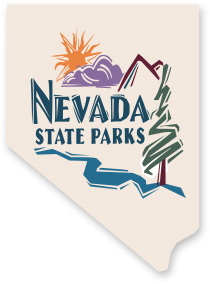Spooner Lake & Backcountry
State Park

About Spooner Lake & Backcountry
Nestled in the Lake Tahoe Basin, the Spooner Backcountry is a widespread recreational and natural oasis, with a lake surrounded by aspens and more than 12,000 acres of forested, open space. The park features 50 miles of hiking, equestrian and mountain biking trails and primitive roads. A few of the more popular trails are the Marlette, Red House, Flume and Tahoe Rim Trails. Camping and cabins are also available. The Spooner Lake Cabin sleeps four people comfortably and Wildcat Cabin sleeps two. Both cabins have basic amenities such as composting toilets, beds, cook stoves and wood burning stoves.
FACILITIES & AMENITIES
Spooner Lake Visitor Center & Amphitheater: The new visitor center and amphitheater serve as the heart of Spooner's natural and cultural history programs and ranger-led hikes and tours, as well as provide a one-of-a-kind outdoor science venue for students. The project also serves as a major portal to more than 60 miles of paths and trails spanning 13,000 acres of spectacular non-motorized primitive wilderness within the Lake Tahoe Basin.
Camping: Camping is allowed in three primitive, walk-in campgrounds: Marlette Peak, Hobart and North Canyon. Each campground has a restroom and camp sites with picnic tables and bear resistant food and trash storage boxes. While camping, store food and trash in these boxes. Pack it in, pack it out: when you depart, remove all food and trash from the boxes so they are available for use by other campers. Dispersed camping is not allowed around Marlette Lake or anywhere else within park boundaries. A camping limit of 14 days in a 30-day period is enforced.
Cabin Rentals: The Park also manages two backcountry cabins. The Spooner Lake Cabin (available May 1 - October 15) is located just north of Spooner Lake and sleeps four people comfortably. If you’re looking for a more intimate experience, the Wildcat Cabin (available May 1 - October 15) is approximately 2.5 miles up North Canyon (several hundred yards east of the road) and sleeps two. Both cabins have basic amenities such as composting toilets, beds, cook stoves and wood burning stoves, but other items such as sleeping bags, food and utensils will need to be packed in. Please contact the park for more information.
Group Use: A group use area is available by reservation for groups of up to 150 people.
Hiking: The 5-mile trail to Marlette Lake via North Canyon Road is the most popular backcountry trail. A hiker and horse trail parallels this road for four miles. Access is from Spooner Lake, which is surrounded by a flat 2-mile trail that offers excellent opportunities for nature study.
The famous and historic 4.4-mile Marlette Flume Trail is accessed from the south via North Canyon or from the north via the steeper Tunnel Creek Road. Thirteen miles of the 165-mile Tahoe Rim Trail wind in and out of the park. The Marlette Flume Trail is closed to bikes between Hobart Road and Spooner Summit. The segment north of the park, between Tunnel Creek Road and the Mount Rose Highway, is open to bikes even days only.
Fishing: Fishing is a favorite backcountry activity. A Nevada fishing license is required and can be purchased online at ndow.org. At Spooner Lake, the limit is five and bait is allowed. The Marlette Lake season runs July 15 through September 30 and is catch-and-release only. Use only artificial lures and single barbless hooks in this catch-and-release lake. The Hobart Reservoir season runs May 1 through September 30. The limit is five, and only one may be longer than 14 inches. Only artificial lures and single barbless hooks are allowed.
Hunting: Hunters enjoy the backcountry in accordance with Nevada Department of Wildlife regulations and State Parks’ administrative authority. Please call the park for more information on hunting areas, or click here for a map of the No Hunting Zones in Lake Tahoe Nevada State Park / Spooner Backcountry.
Cross Country Skiing and Snowshoeing: The park has entered into a partnership with Nevada Nordic, a non-profit group whose goal is to bring groomed ski trails to Nevada. The community ski trail grooming is free to the public and supported completely by donations. Cross-country skiers and snowshoe users are welcome, but all visitors should be careful not to damage the skiing surface or tracks. Groomed trails are located on the south side of Spooner Lake in Spooner Meadow and up North Canyon to Marlette Lake, snow permitting.
View an interview with Park Supervisor Jay Howard about the recreational opportunities in the Spooner Backcountry.
Volunteer Opportunities: Backcountry volunteer opportunities are available. Contact the park office at (775) 831-0494 or the Tahoe Rim Trail Association at 775-588-0686.
Programs: Information about program scheduling may be obtained from either park staff or kiosks. Upon request, special presentations can be arranged for groups.
American Discovery Trail: The American Discovery Trail is a great way to experience Nevada's beautiful and rugged backcountry. The Nevada portion of this 6,800+ mile trail covers 500 miles of Nevada's remarkable landscape, traversing 14 mountain ranges and challenging its explorers to a total climb of 34,000 feet! Six of Nevada's State Parks can be accessed by way of this route, including Spooner Lake State Park. Stay with Nevada State Parks while exploring the American Discovery Trail!
Hours: Sunrise to sunset, 365 days a year.
FIELD NOTES
- The backcountry is managed as a non-motorized area to preserve the area’s ecological and recreational attributes. Only motorized vehicles displaying official agency designations or a State Parks motorized vehicle permit are allowed in the backcountry.
- Occasionally you will encounter State Parks, fire, wildlife and other official vehicles in the backcountry on water system, ecological restoration or park business. Nevada’s Tahoe Resource Team implements environmental improvement projects in the park. These projects are designed to improve water quality, control erosion, enhance wildlife habitat, restore forest health and improve recreation opportunities. Environmental projects mean that there may be vehicle traffic, chainsaw and tree chipper noise, trail crews and construction. Please excuse any inconvenience.
- Trash is not collected in the backcountry. Please pack out all trash.
- The use of drones or any remote controlled aircraft is not allowed. Visit B4UFLY for more info.
- Do your part, keep Tahoe Bears Wild.
- Removing, disturbing or damaging any historic structure, artifact, rock, plant life, fossil or other feature is prohibited. State and federal laws protect this area and its resources.
- Pets are welcome, but they must be kept on a leash of not more than six feet in length.
- Visitors are responsible for knowing all park rules and regulations in effect. Detailed rules and regulations are posted at the park or may be obtained from any Park Ranger.
- Those with developmental and/or physical limitations are invited to enjoy all of the recreational activities of Nevada State Parks. If you would like to request additional support or accommodations, please call the Nevada State Parks division office. We continually seek ways to provide recreational opportunities for people of all abilities and welcome any suggestions you may have.
- View a list of frequently asked questions.
NATURAL RESOURCES/CLIMATE
Lake Tahoe Nevada State Park is abundant and diverse in natural resources, from high alpine mountain peaks (Snow Valley Peak, Marlette Peak) to lush meadows (Spooner Meadow), majestic forest stands to ribbons of aspen groves, sub alpine and alpine lakes, to the prominent granitic rock outcrops and sandy beaches of Lake Tahoe’s spectacular shoreline. This varied environment supports the dynamic processes that shape the habitat for a rich spectrum of vegetation, wildlife, and fisheries within the park. (READ MORE)
HISTORY – ESTABLISHED IN 1969
The backcountry is more than a recreational playground and an ecological resource. It is also the site of the historic Virginia Gold Hill Water System and an enormous amount of Comstock logging done by the Sierra Nevada Wood and Lumber Company and the Carson and Tahoe Lumber and Fluming Company. Logging operations were conducted from the 1870s through the turn of the century and supplied the Comstock with the lumber and cordwood necessary for the gold and silver mines of Virginia City, Silver City and Gold Hill. Initially developed in 1873, an ingenious water system furnished the water required by extensive steam engine operations of the mines and the nearly 30,000 people of the boom towns. The system was comprised of Marlette Lake, Hobart Reservoir and an intricate system of wooden box flumes and pipelines. The Marlette Flume and another flume from the north entered a 3,994 foot tunnel that emptied onto the east side of the Carson Range and joined the Inverted Siphon, the key pipeline through Washoe Valley. This 813 psi pipeline was the highest pressure pipeline in the world at the time and represented an engineering feat that most thought could not be done. At its peak, the water system delivered up to 10 million gallons a day to the Comstock. This system, now known as the Marlette Water System is one of the original inverted siphons and is still in use today.
Park Fees
Day use entrance fee: $10.00 per vehicle (Non-NV Vehicles: $15.00 per vehicle)
Bike in: $2.00 per bike
Miscellaneous: $2 per bike for vehicles with more than 4 bikes.
Cabins: Two cabins available; contact park for information on fees.
push your boundaries
Explore More Nevada State Parks

Cave Rock
Tucked beneath the rugged, volcanic face of Cave Rock on the eastern shore of Lake Tahoe, Cave Rock State Park, with its boat launch and sandy beach, offers visitors swimming, snorkeling, scuba diving, canoeing and fishing in crystal clear water.
- Quick Look
- Full Park Detail
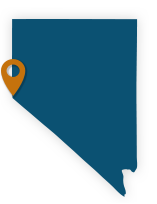
Cave Rock
Lake Tahoe, Nevada- Amenities
- View Description
- Full Park Detail

Van Sickle
Just a short walk from South Lake Tahoe’s stateline casinos, Van Sickle Bi-State Park is one of the most accessible parks in the Tahoe Basin. A short climb from the trailhead transports visitors to the serenity of the forest and offers stunning views of the lake.
- Quick Look
- Full Park Detail
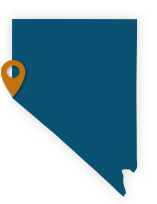
Van Sickle
Incline Village, Nevada- Amenities
- View Description
- Full Park Detail

Sand Harbor
With crystal-clear waters, long sandy beaches, rocky coves, shady forested areas and panoramic lake views, Sand Harbor offers visitors unparalleled opportunities to enjoy and explore Lake Tahoe and also hosts the Lake Tahoe Shakespeare Festival every summer.
- Quick Look
- Full Park Detail
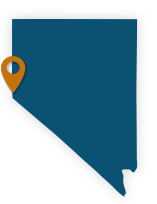
Sand Harbor
Incline Village, Nevada- Amenities
- View Description
- Full Park Detail
